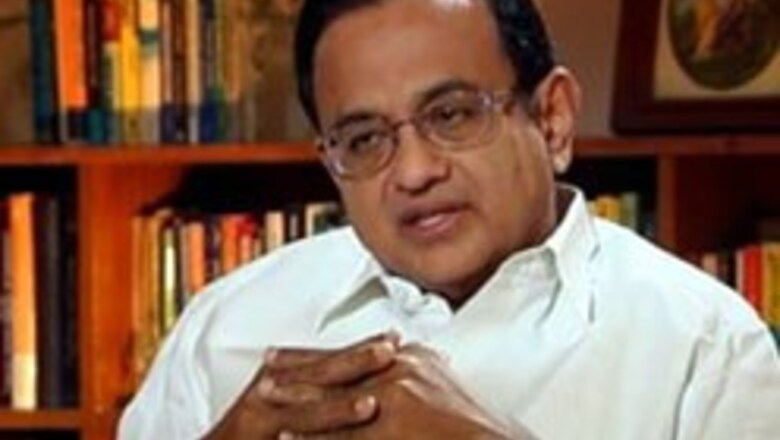
views
Washington: The International Monetary Fund (IMF) has lowered India's growth forecast from 9.3 per cent in 2007 to 8 per cent in 2008-09 as it predicted the world economy now "in a tough spot" would grow by 4.1 per cent this year.
The global economy has weathered the impact of the credit crunch better than first feared, the IMF said Thursday as it issued a downbeat forecast for the second half of 2008, amid concerns about inflation, particularly in emerging markets.
"The global economy is in a tough spot, caught between sharply slowing demand in many advanced economies and rising inflation everywhere, notably in emerging and developing economies," IMF's World Economic Outlook (WEO) said.
The IMF expects global growth to slow significantly in the second half of the year, before recovering gradually in 2009. Updated forecasts in the WEO also raise inflation projections, particularly for emerging markets and developing countries.
The WEO expects a moderation in global growth from five per cent in 2007 to 4.1 per cent in 2008 and 3.9 per cent in 2009. Following a better-than-expected performance in the early part of 2008, WEO projections for the US, the euro area and Japan show a slowdown in activity in the second half of 2008.
Expansions in emerging and developing economies are also expected to lose further steam, with growth in these countries projected to ease to around seven per cent in 2008-09 from eight per cent in 2007. China's growth rate is expected to ease from near 12 per cent in 2007 to around 10 per cent in 2008-09.
At the same time, as the growth slowdown, the WEO notes, rising energy and commodity prices have boosted inflationary pressure, particularly in emerging and developing economies.
In advanced economies, inflation pressures are likely to be countered by slowing demand and, with commodity prices projected to stabilize, the expected increase in inflation for 2008 is forecast to be reversed in 2009.
In emerging and developing countries, inflationary pressures are mounting faster, fuelled by soaring commodity prices, above-trend growth, and accommodative macroeconomic policies.
Hence, inflation forecasts for these economies have been raised by more than 1.5 percentage points in both 2008 and 2009, to 9.1 per cent and 7.4 per cent respectively and the moderation in inflation in 2009 will depend on more assertive tightening of monetary conditions.
"In the recent past, the global economy has managed to take large shocks in stride, but we think its capacity to absorb them is being increasingly challenged," IMF chief economist Simon Johnson said at a press briefing Thursday.
"How it will navigate through the latest turbulence in financial and commodity markets will crucially depend on how successfully policymakers respond to a fast-changing set of risks in many advanced and emerging economies."
The WEO says the top priority for policymakers is to head off rising inflationary pressure while keeping sight of risks to growth. In many emerging economies, tighter monetary policy and greater fiscal restraint are required, combined in some cases with more flexible exchange rate management.
In the major advanced economies, the case for monetary tightening is seen as less compelling, given that inflation expectations and labour costs are projected to remain well anchored while growth is weakening, but inflation pressures need to be monitored.
The WEO says the global economy will need to adapt to the increased transfers in purchasing power from commodity users to producers, while policy tightening will be necessary in several countries that face inflationary pressures.













Comments
0 comment